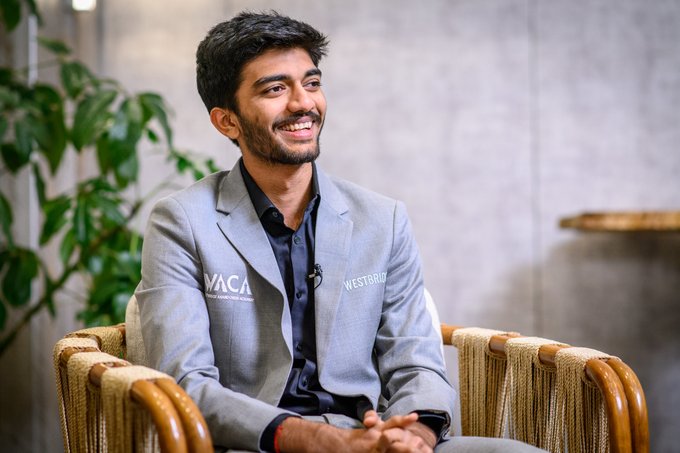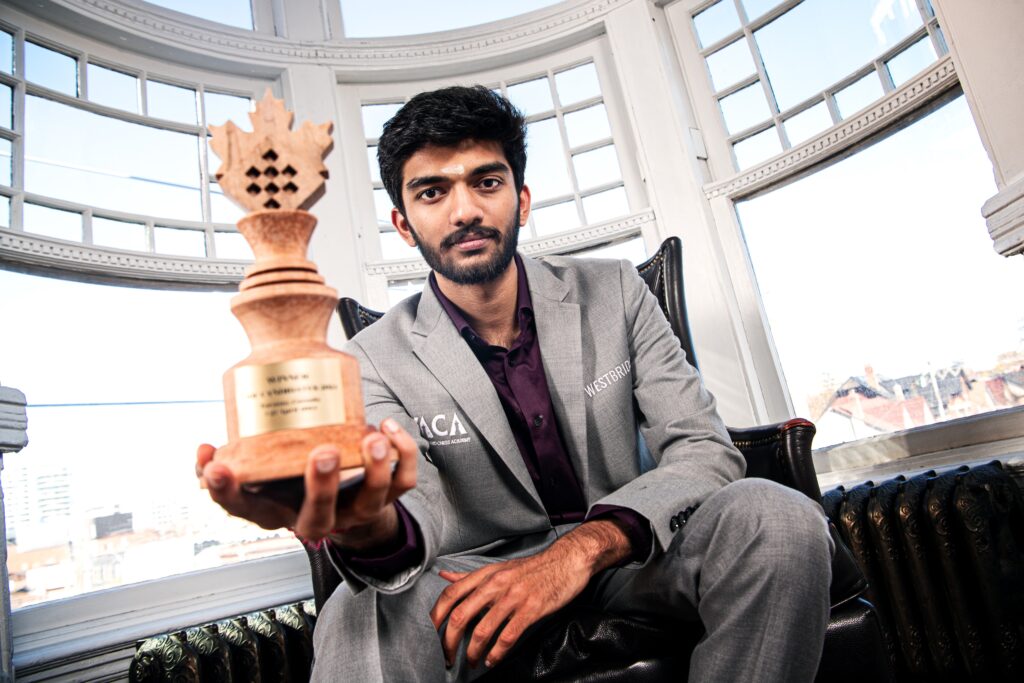
To think of it now! It was exactly a year ago when D Gukesh was giving us sleepless nights — quite literally. The Candidates Tournament was taking place in Toronto, Canada, and games would start shortly after midnight IST. Almost up to dawn, chess lovers in India stayed awake following the moves. Even non-chess enthusiasts — especially those whose profession involves reporting sport — had no choice.
Looking back, those were good nights. No Indian had made it to the Candidates since Viswanathan Anand. Here were three — Gukesh, R Praggnanandhaa and Vidit Gujrathi — in the elite field of eight, from which the winner would earn the right to challenge the reigning world champion. Gukesh clinching it was, of course, the icing on the cake.
Those sleepless nights were just the precursor to what was about to unfold. Nobody, not even the most ardent Indian chess fan, expected one of the three to win the Candidates. Their talent and work ethic were known. But few imagined one of them would conquer a field that included Fabiano Caruana, Hikaru Nakamura and Ian Nepomniachtchi. Yet, the 17-year-old did just that — scoring nine points from 14 rounds to win by half a point.
It happened so quickly, it took time to process. There had been no Indian in the top echelons of chess before or after Anand. The gap between the five-time world champion and the rest of the country’s players had seemed so vast that hardly anyone thought this was possible. These young Indians were gifted, yes — but ruling the world at 17 or 18?

Displaying nerves of steel, composure beyond his years, the preparation of a perfectionist, the manoeuvring skills of a veteran, and calmness in the most testing moments, Gukesh turned the tables. Defying the odds, he became the youngest-ever winner of the Candidates. It was a monumental achievement in global chess, and its implications went well beyond the 64 squares — making a statement that felt almost diplomatic in nature.
It wasn’t merely about chess. It was a quiet announcement of a new India — confident, composed, and sharp. A generation that knew its craft, respected the past, and wasn’t afraid to walk its own path. There was no show of bravado, no need to stare down the opponent. This was about excellence — silent, sincere, and self-assured.
That was the hallmark of the Gukesh triumph, and it echoed at the World Championship venue in Singapore months later. Gukesh became the youngest world champion in history — yet those present spoke more about his humility than his history-making feat. He could have said anything. Taken apart his critics, gloated, or even revelled in his moment.
Instead, he began his press conference by praising his opponent, Ding Liren of China. He acknowledged learning a great deal about grit and resilience during their 14-round match. There wasn’t a trace of self-congratulation. Journalists, spectators, volunteers, even security staff — all were left talking about the same thing: “How can a champion be so humble?”
A year on from his victory in the Candidates, we look back at the journey that took D Gukesh to the World Chess Championship at the age of 18.@BoriaMajumdar ✍️@DGukesh @FIDE_chesshttps://t.co/xN4k8V6Kky
— RevSportz Global (@RevSportzGlobal) April 22, 2025
To think now that the seeds of this moment were sown a year ago in Toronto feels almost surreal. So much has happened, and so fast. Today, there are three Indians in the top 10 and six in the top 25. That’s rapid and remarkable progress — achieved with little noise. Much of the credit belongs to Gukesh and those who support him. It’s a collective triumph, and a toast to a spirit that says: winning is wonderful, but it isn’t everything.
Thank you, Gukesh and team, for championing that message. The sleepless nights were truly worth it.



